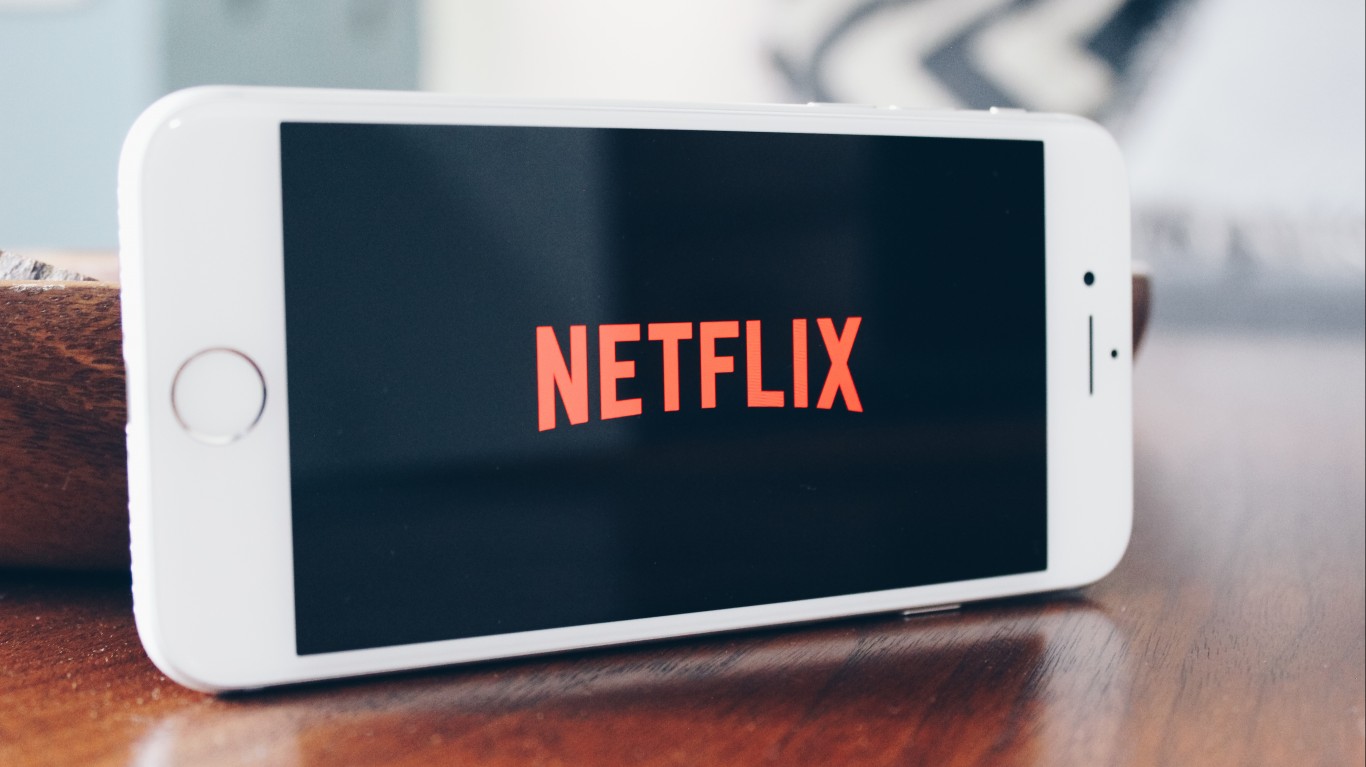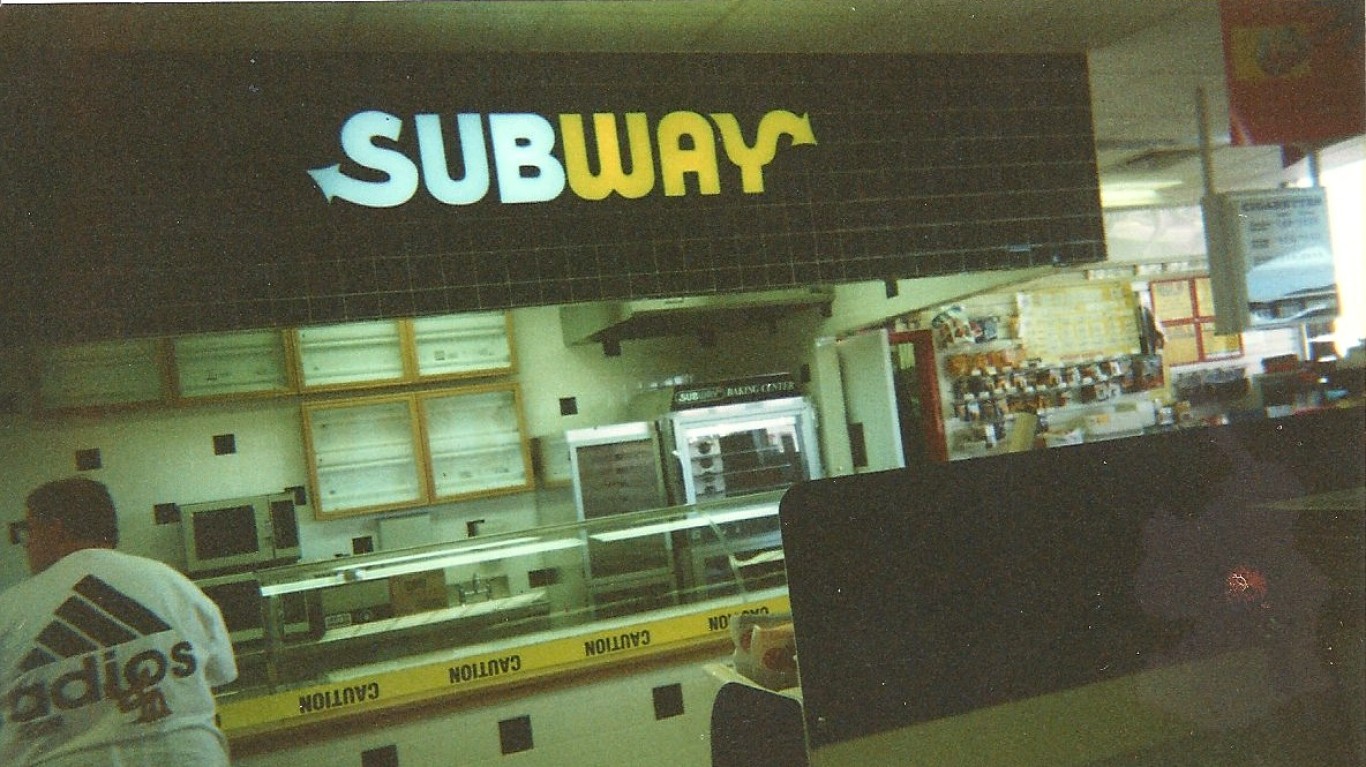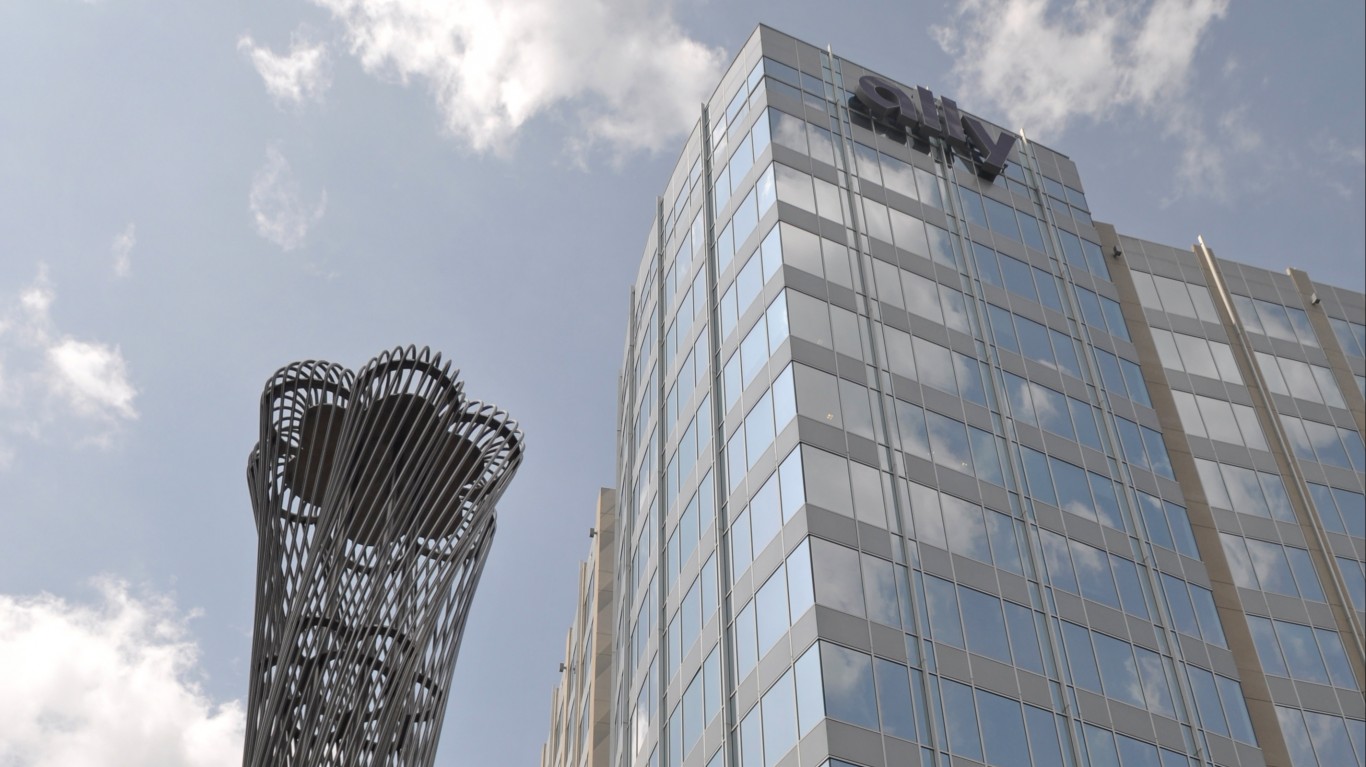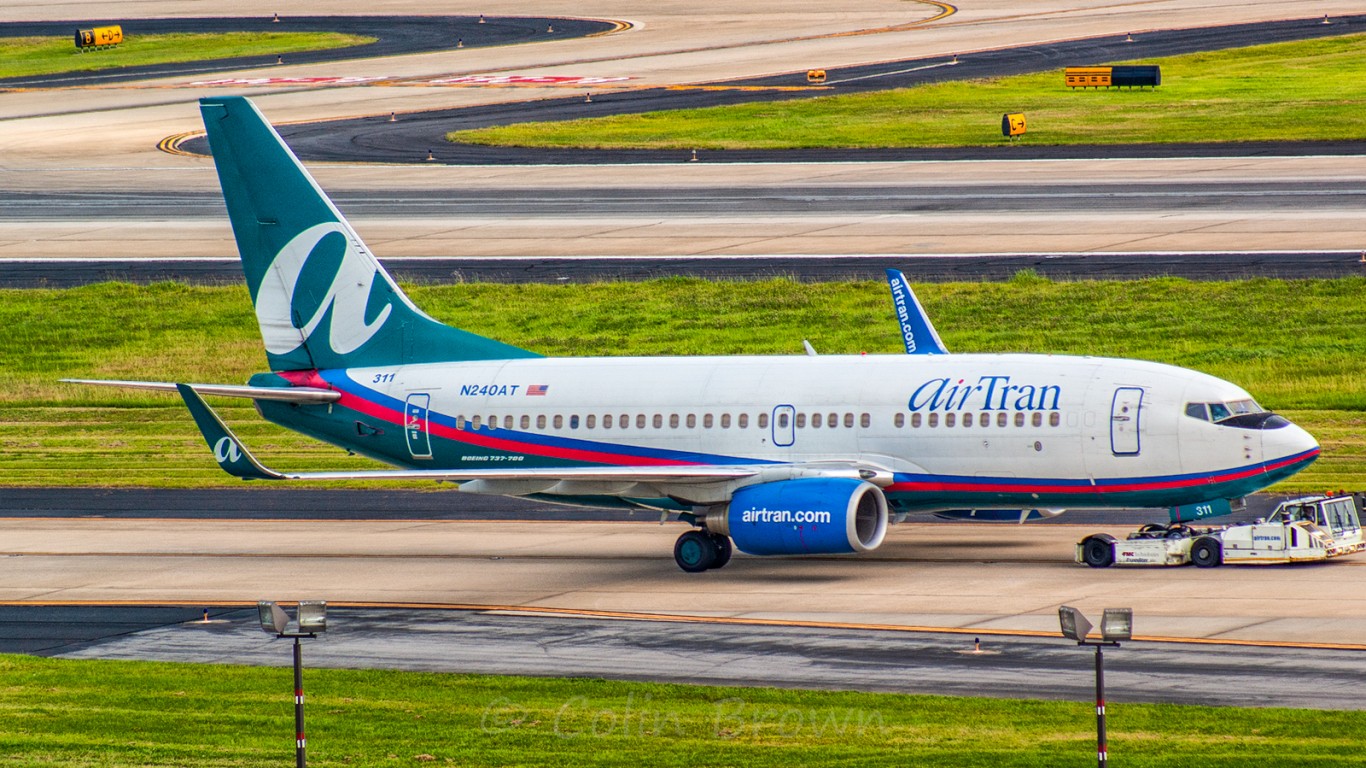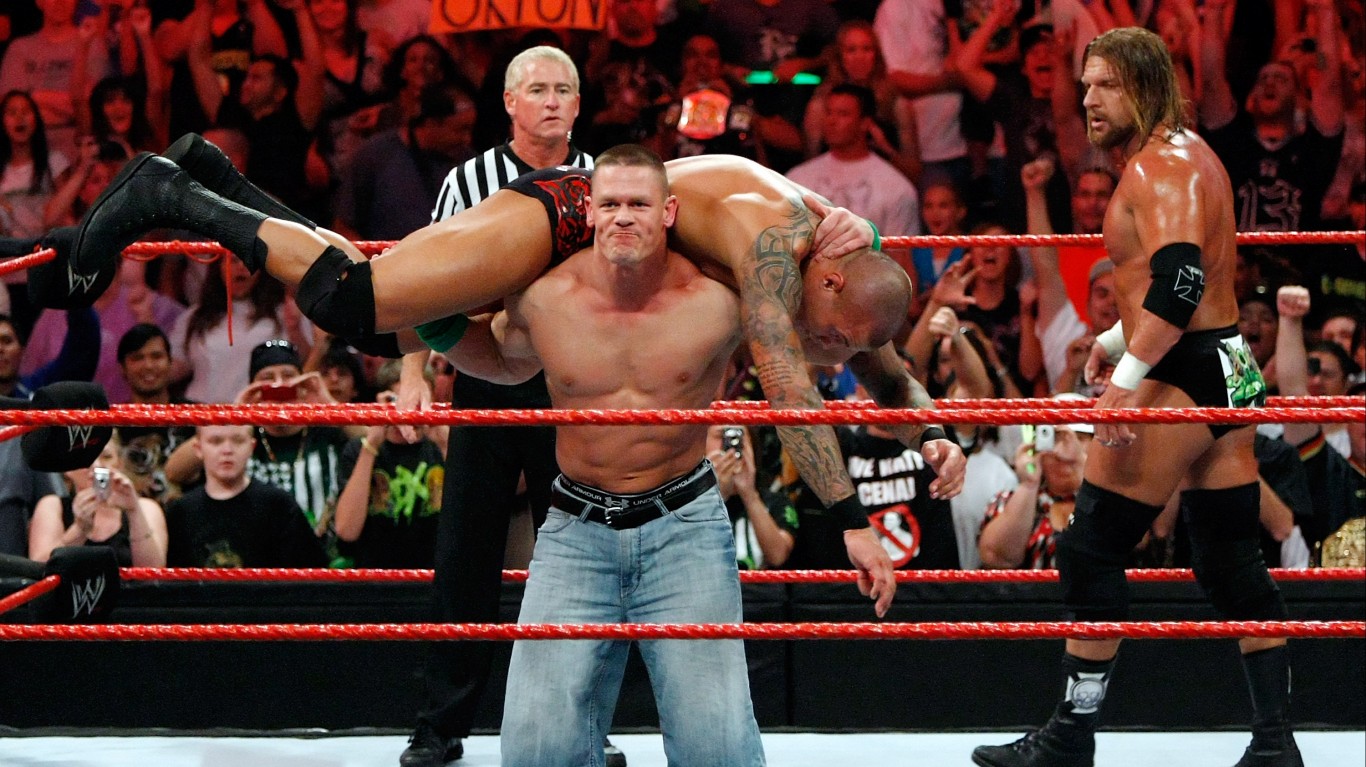
For the nation’s largest companies, a highly-recognizable name can be an extremely valuable asset. However in the face of a public relations disaster, declining revenue, or major changes in consumer preference, a high-profile brand name can become a liability. In these cases, rebranding with a new name can be necessary to turn corporate fortunes around.
24/7 Wall St. reviewed 15 of the biggest corporate name changes in recent history. This list focuses on name changes that were responses to urgent financial or public relations problems. Some of these companies may not be around today had they not rebranded. Here is a look at the brands that will disappear in 2020.
Some of these companies changed their brands to more effectively represent their range of products and services. For example, Weight Watchers changed its name in 2018 to WW to better communicate that the company offers a wider array of wellness products than just weight loss aid.
In other cases, a company’s brand had been so tarnished by scandal or associated with an industry held in increasingly poor regard that the name had to go. The Lance Armstrong Foundation changed its name to Livestrong Foundation after the company founder and namesake was outed for use of performance-enhancing drugs.
In other instances, long-term business failure or changing cultural values led to a name change for these companies. But often, a single incident and the resulting fallout was enough to precipitate a name change for these companies. These are the biggest corporate scandals of the last decade.
In a few rare cases, the name changes were not made from a financial or public relations perspective, but a legal one. One well-known entertainment company on this list was forced to change its name due to a trademark violation.
Click here to see the companies that were forced to change their names
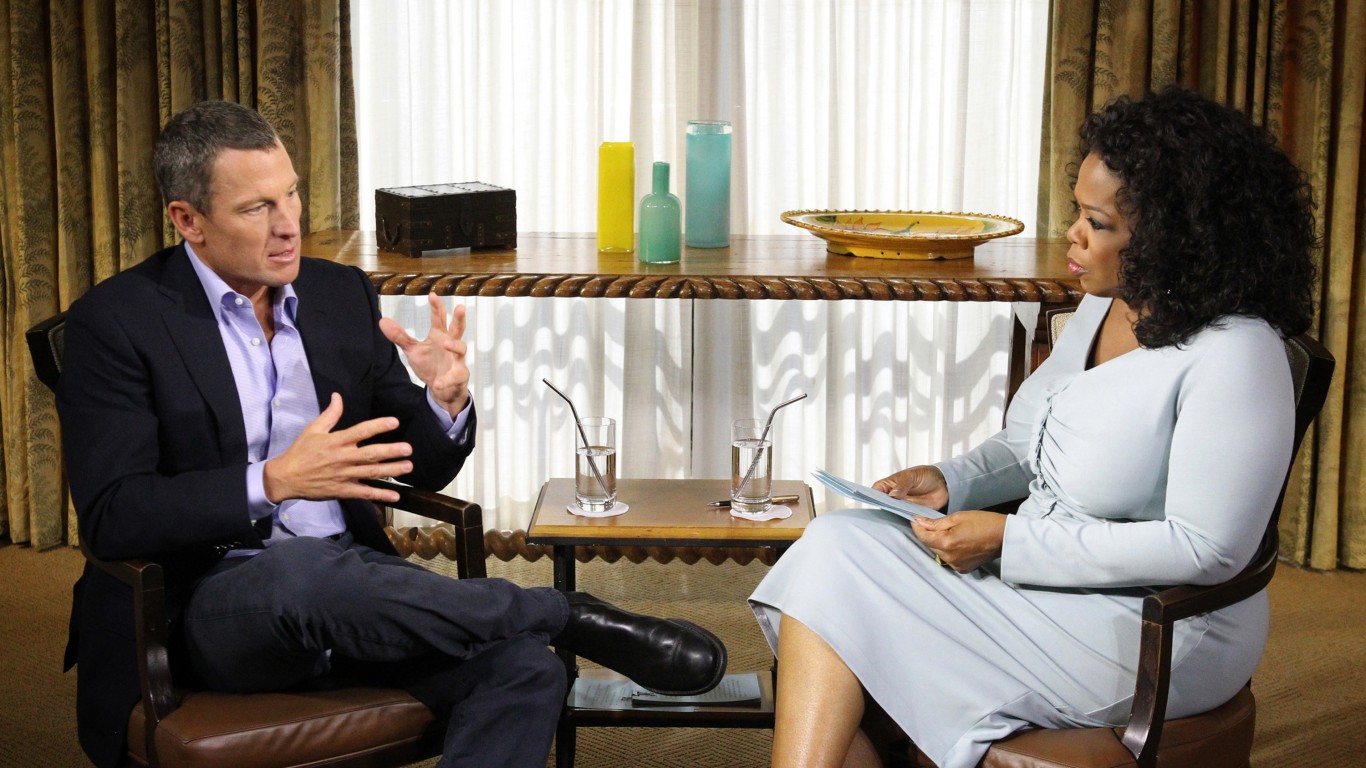
1. Livestrong Foundation
> Former name: Lance Armstrong Foundation
> Year changed: 2012
The Lance Armstrong Foundation began in 1997 — in the wake of Lance Armstrong’s testicular cancer diagnosis — as a charity to raise money for cancer research. However, after years of speculation and investigations, it became indisputable in August 2012 that the seven time Tour de France champion had been illegally using performance-enhancing drugs throughout his professional career. In the fallout, Armstrong was stripped of his titles and banned from professional cycling. Armstrong’s charity foundation formally changed its name to the Livestrong Foundation in a rebranding effort.
[in-text-ad]

2. American Outdoor Brands Corporation
> Former name: Smith & Wesson
> Year changed: 2017
Smith & Wesson Holding, the parent company of the Smith & Wesson firearm brand, changed its name to American Outdoor Brands on Jan. 1, 2017. The change was likely made primarily in response to the volatility of the firearms market.
Gun sales can fluctuate considerably in the United States due to current events, such as mass shootings, and political trends. By changing its name, the company aimed to expand its outdoor gear business to new markets that might have negative views of the firearm industry. Since the name change, however, the company’s stock has fallen by over 50%.
3. Netflix
> Former name: Qwikster
> Year changed: 2011
In 2011, having already announced a 60% price hike that infuriated customers, Netflix Inc. introduced Qwikster. The plan, part of Netflix’s attempt to separate its streaming video service from its DVD mailing service, was an instant flop. Customers decried not just the higher costs but also the inconvenience of two separate websites and two separate bills. The Qwikster decision lasted just a few weeks. In a 2011 conference call, CEO Reed Hastings said of the Qwikster plan, “In hindsight, it’s hard to justify.” He also added, “Qwikster became the symbol of Netflix not listening.”
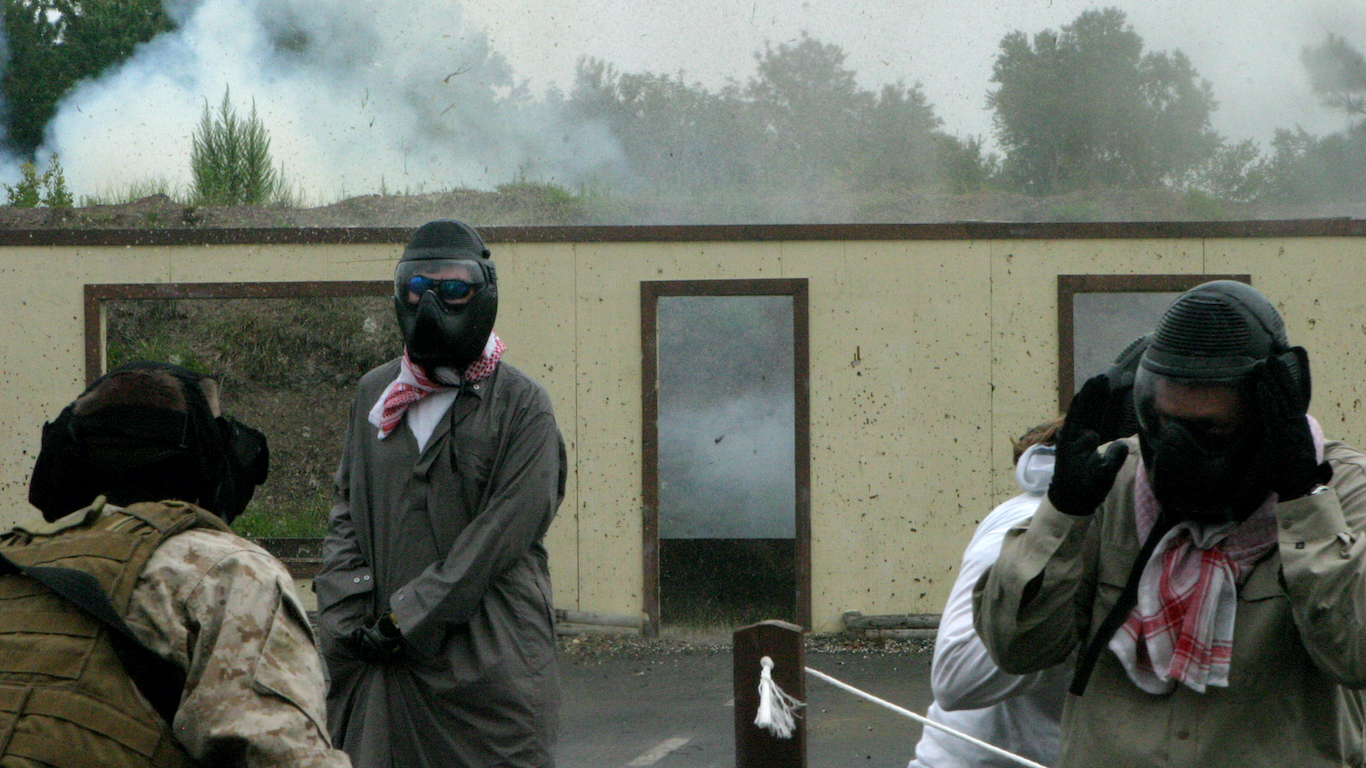
4. Academi
> Former name: Xe Services, Blackwater Worldwide
> Year changed: 2009, 2011
The corporation once known as Blackwater has changed its name twice in the past four years. In September 2007, five Blackwater guards were involved in an incident that resulted in the deaths of 17 Iraqi civilians in Baghdad. In February 2009, likely in part as a public relations move, Blackwater changed its name to Xe Services. Just a few months later, two of its mercenaries fired on a vehicle and killed two Afghan civilians.
In December 2011, six months after the second gunman was convicted and sentenced to 37 months in prison for manslaughter, the company again changed its name, this time to Academi. As reported by The Wall Street Journal, the company’s CEO, Ted Wright, explained the name change was an attempt to appear more “boring.”
[in-text-ad-2]
5. Subway
> Former name: Pete’s Super Submarines
> Year changed: 1968
The fast-food sandwich chain now known as Subway was founded in 1965 — only back then it went by the name Pete’s Super Submarines, or, Pete’s Submarines, as it read in ads and on billboards. The shop was initially named after the man the restaurant’s founder, Fred DeLuca, had borrowed money from to get the operation off the ground. The relatively cumbersome name was short lived, however, as it was often misheard as “pizza submarine.” The chain changed its name to the now familiar Subway in 1968.
6. Ally Financial
> Former name: GMAC Bank
> Year changed: 2010
In 2008, in the midst of the financial crisis and the bailing out of a number of major financial institutions, the U.S. government bailed out the American auto industry to the tune of over $80 billion. As part of this lifeline, the government purchased billions of dollars in shares of GMAC, which began as the financing arm of General Motors and was partially owned by the automaker. It also injected money into GM directly.
In 2010, GMAC changed the name of its banking unit to Ally Financial. The decision appears to have been made to distance the company from both its own rescue and General Motors’ financial difficulties.
[in-text-ad]
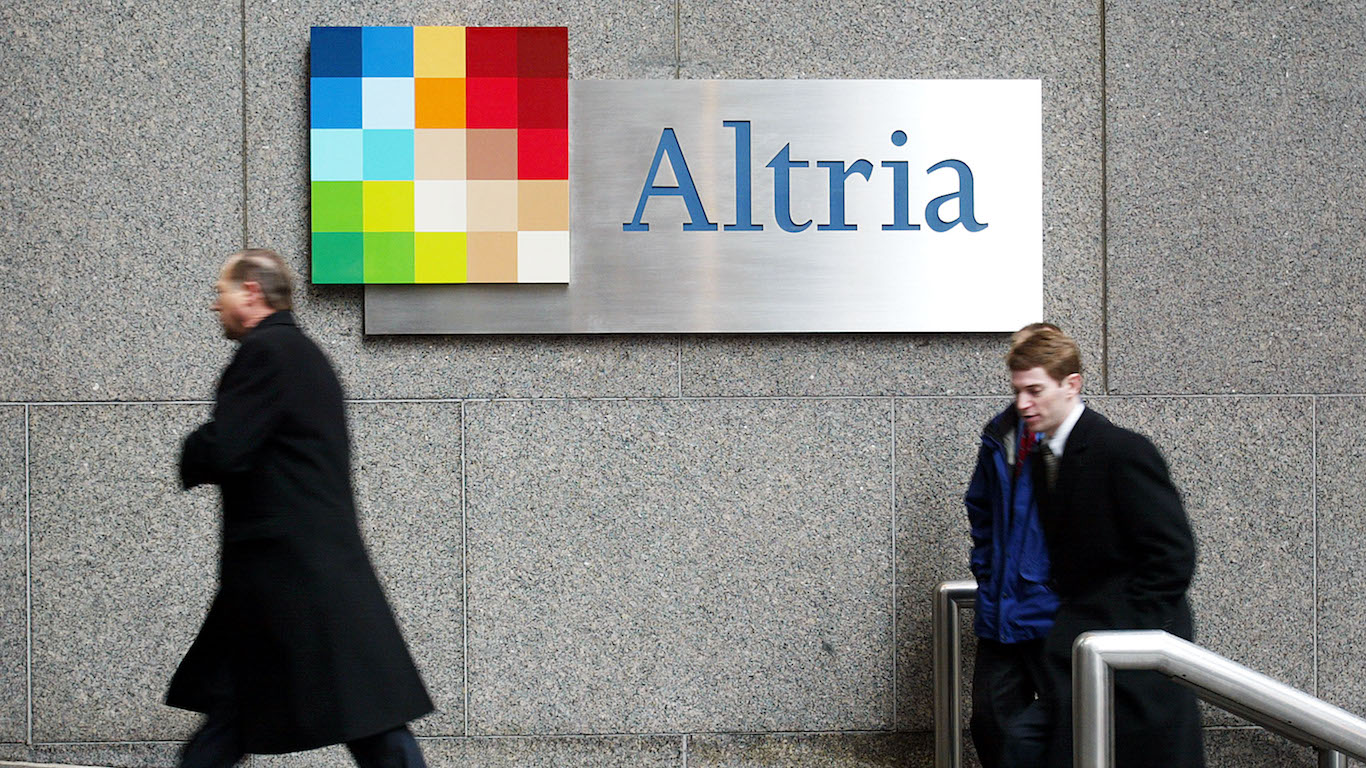
7. Altria
> Former name: Philip Morris
> Year changed: 2003
Philip Morris, maker of brands like Marlboro, changed its name to Altria Group Inc. in 2003 on the same day that the company was cleared of responsibility in a wrongful death case. The move had been planned since 2001. Philip Morris claimed that the name change was intended to emphasize that the company sells a wide array of products, in addition to the famous tobacco brand, but the assumption for many is that the move was largely to disassociate the company from its controversial product.
An anti-tobacco group, Intact, called the plan “a PR maneuver meant to distance the corporation’s image from its deadly business practices.” The tobacco units, Philip Morris International and Philip Morris USA, kept their original names.

8. WWE
> Former name: World Wrestling Federation
> Year changed: 2002
The popular entertainment company once known as the World Wrestling Federation, or WWF, had to change its name for a very different reason than many of the other companies on this list — a trademark violation. Few multimillion dollar companies come across such a problem. But the World Wildlife Fund, a global conservation organization founded in 1961 that carries the initials WWF, sued the entertainment group and won on the grounds that it had broken a 1994 agreement that it would limit use of the WWF initials. The WWF in 2002 changed its name to World Wrestling Entertainment, and finally just WWE.
9. AirTran Airways
> Former name: ValuJet Airlines
> Year changed: 1997
On May 11, 1996, ValuJet Flight 592 crashed in the Florida Everglades, with no survivors among the 110 passengers and crew. Following the crash, despite initially ruling the airline safe, the FAA grounded ValuJet Airlines flights in June 1996 for three months. The FAA stated ValuJet knowingly flew planes that were potentially unsafe. Although it later returned to offering inexpensive flights, in 1997 ValuJet acquired AirTran Airways, taking the smaller airline’s name.
[in-text-ad-2]

10. Bausch Health
> Former name: Valeant Pharmaceuticals
> Year changed: 2018
Valeant Pharmaceuticals gained tremendous public notoriety for sharply raising prices on life-saving drugs the company offered through its pharmacy Philidor, which has since been shut down. Company shares plummeted in 2015 and several public lawsuits have surfaced in the wake of the collapse. The company adopted the name of its eye care subsidiary, Bausch + Lomb, which it acquired in 2013.
In July 2018 it officially changed its name to Bausch Health. In late 2019, the company agreed to pay shareholders $1.21 billion on the grounds that it misled them about its financial situation leading up to the stock price collapse.
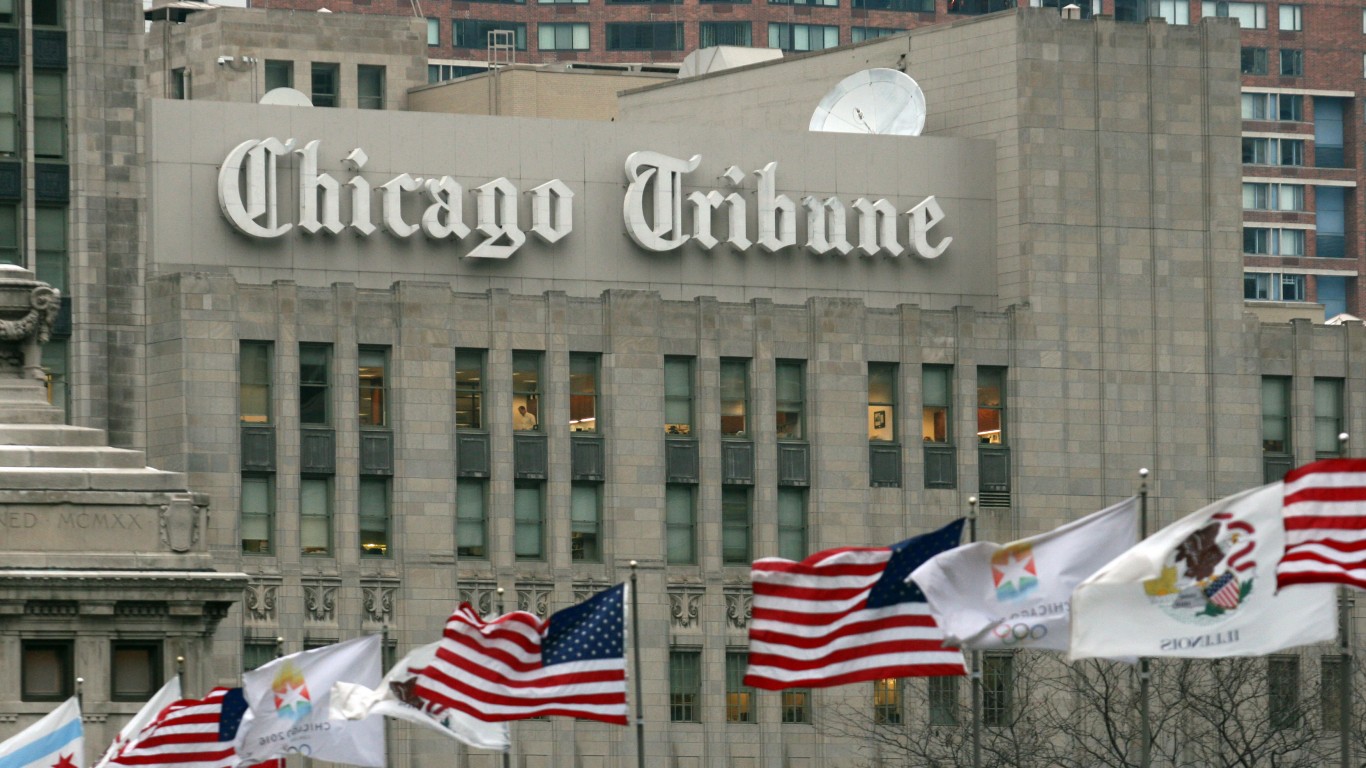
11. Tribune Publishing Co.
> Former name: Tronc
> Year changed: 2018
In 2016, Tribune Publishing, the owner of major newspapers like the Chicago Tribune and the Los Angeles Times, changed its name to Tronc. The name change was likely intended to signal the publishing company’s movement into the modern media landscape, and also to prevent confusion between the company and Tribune Media, the company from which it was spun off in 2014. The change was not well-received. Two years later, Tribune Media was apparently in the process of merging with Sinclair Broadcasting Group, and Tronc changed its name back. The merger eventually fell through but the name change stuck.
[in-text-ad]
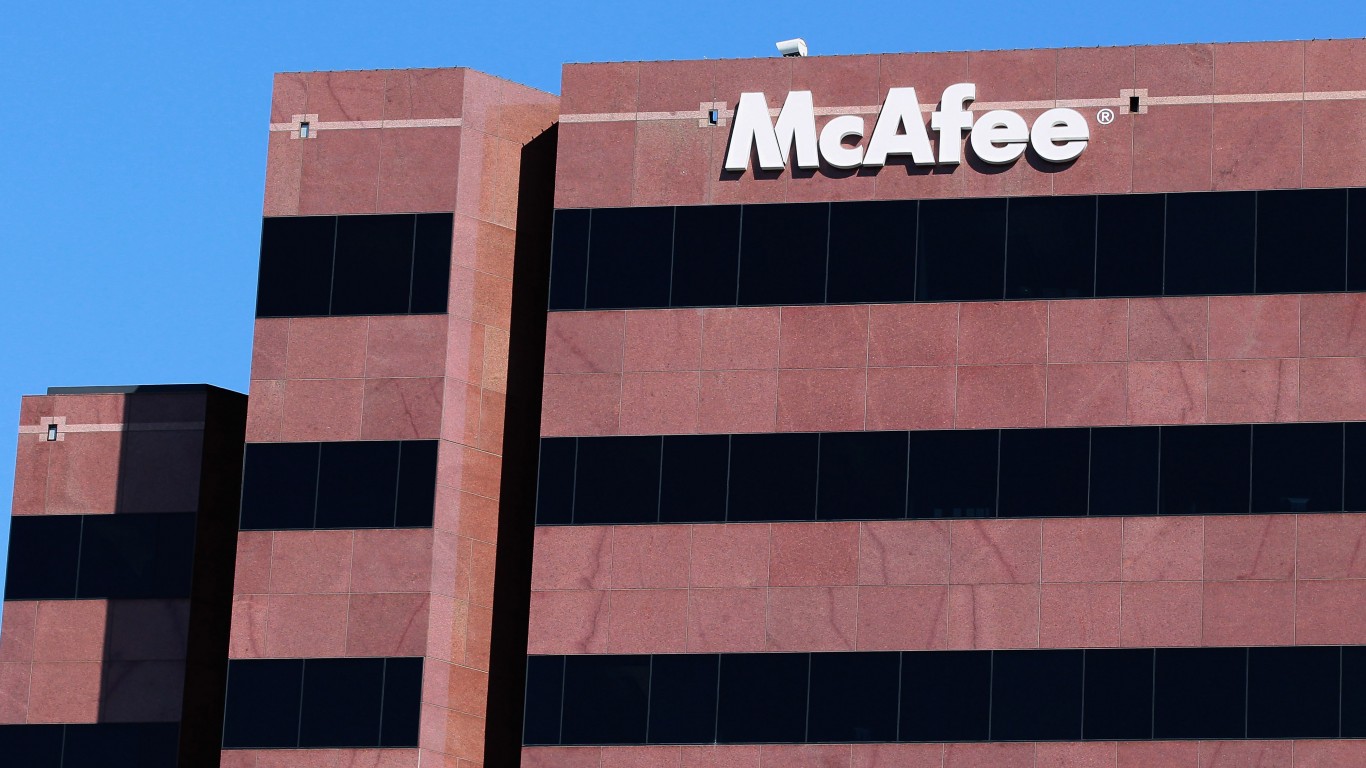
12. Intel Security
> Former name: McAfee
> Year changed: 2014
Since its inception in 1987, McAfee has gone through several name changes. The antivirus software company shared a name with its eccentric founder John McAfee for well over a decade, until it was bought by Intel in 2010 and rebranded as Intel Security. The rebranding was an effort to distance the product from Mr. McAfee, whose erratic behavior was making international headlines.
The merger was short lived however. McAfee began operating as an independent company again in April 2017. The rebranding from Intel back to McAfee was rolled out in stages and almost fully completed as of 2019.
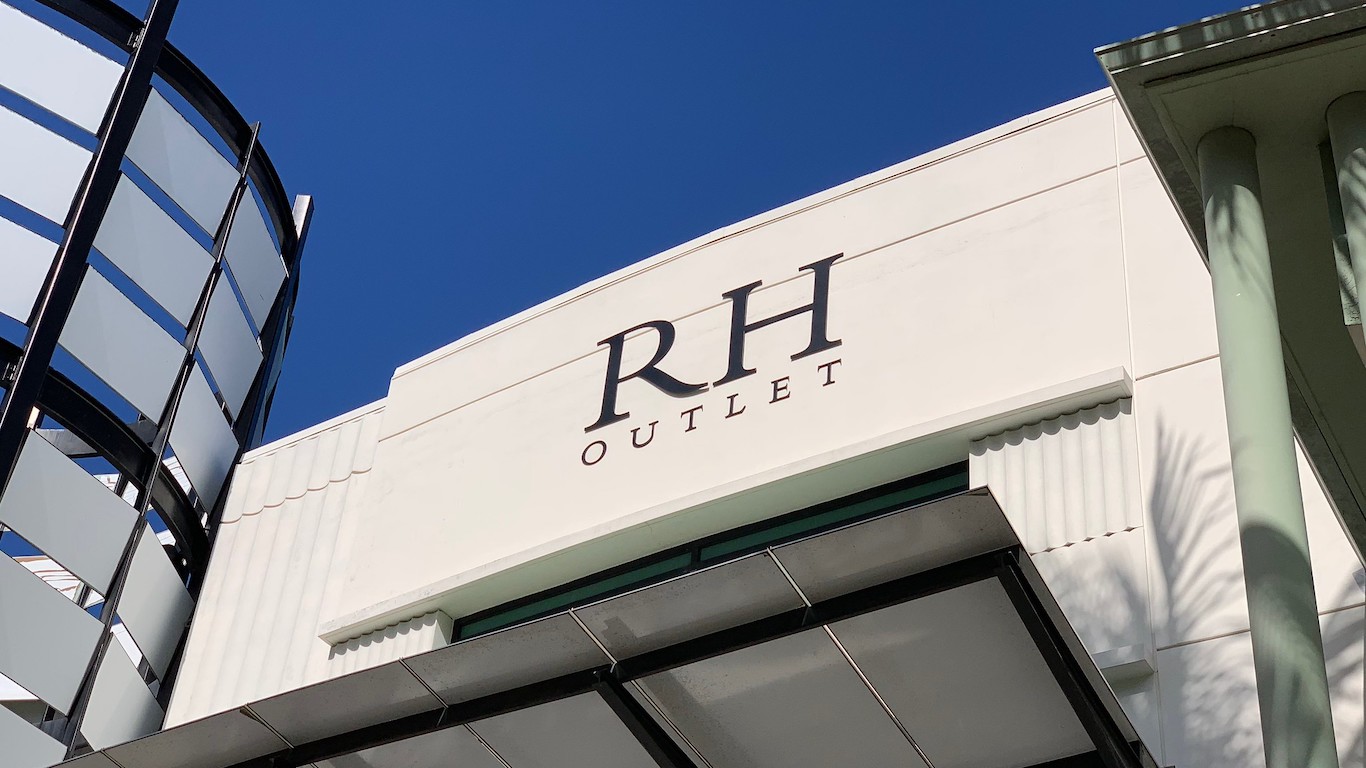
13. RH
> Former name: Restoration Hardware
> Year changed: 2017
In a rebranding effort apparently geared at improving business, the furniture retailer Restoration Hardware officially changed its name to RH on Jan. 1, 2017. The rebranding decision had been made as far back as 2012 when the company’s former CEO Carlos Alberini explained that the change “enhances our identity and moves us beyond our Hardware store beginnings.”
Since the rebranding was made official, the company’s share price has climbed by over 600%. The company had been known as Restoration Hardware since it was founded in 1979.
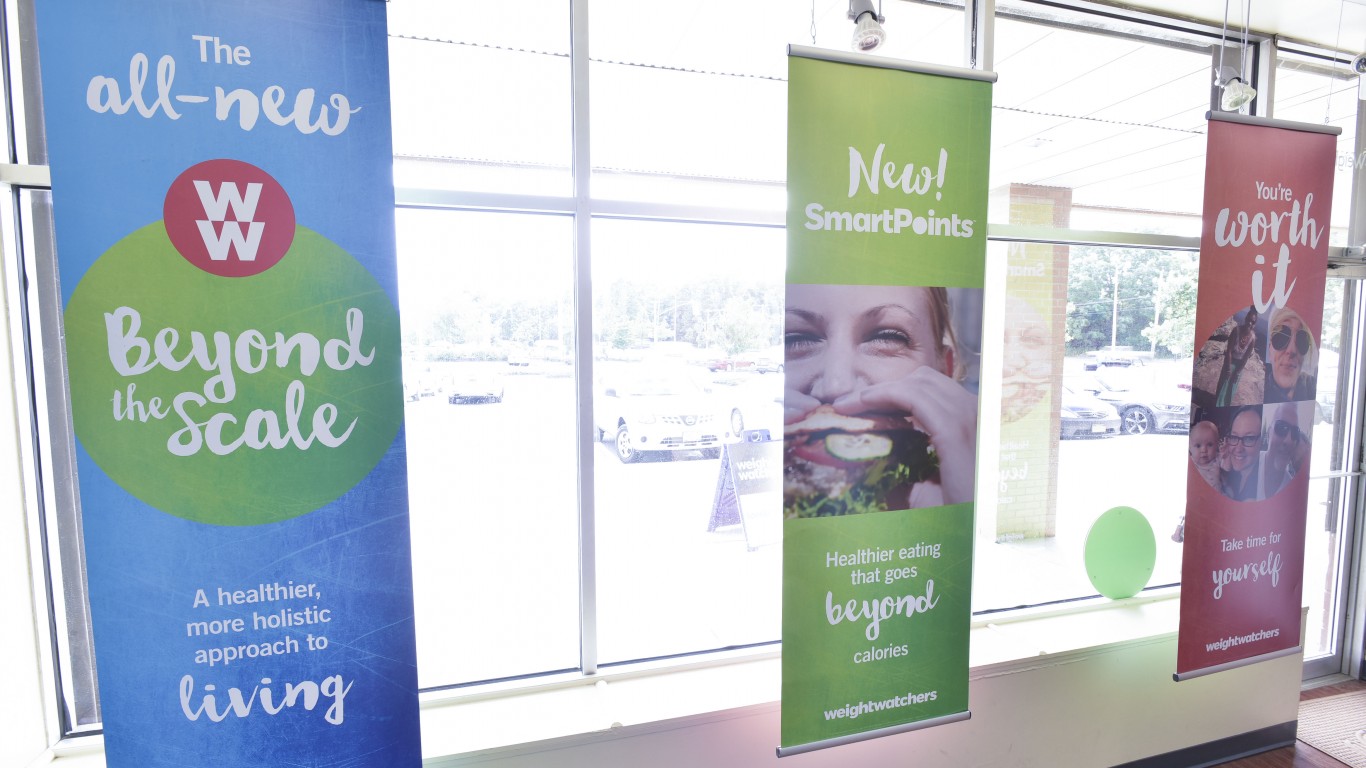
14. WW
> Former name: Weight Watchers
> Year changed: 2018
After 55 years in business as Weight Watchers, a weight management services company, changed its name to WW in 2018. The change was part of a rebranding effort designed to keep the company competitive as cultural norms around weight loss began to change. Namely, dieting has become taboo in favor of personal wellness and body positivity. The rebranding appears to have been effective to some degree, as the company’s share price has climbed over 25% in the last year.
[in-text-ad-2]
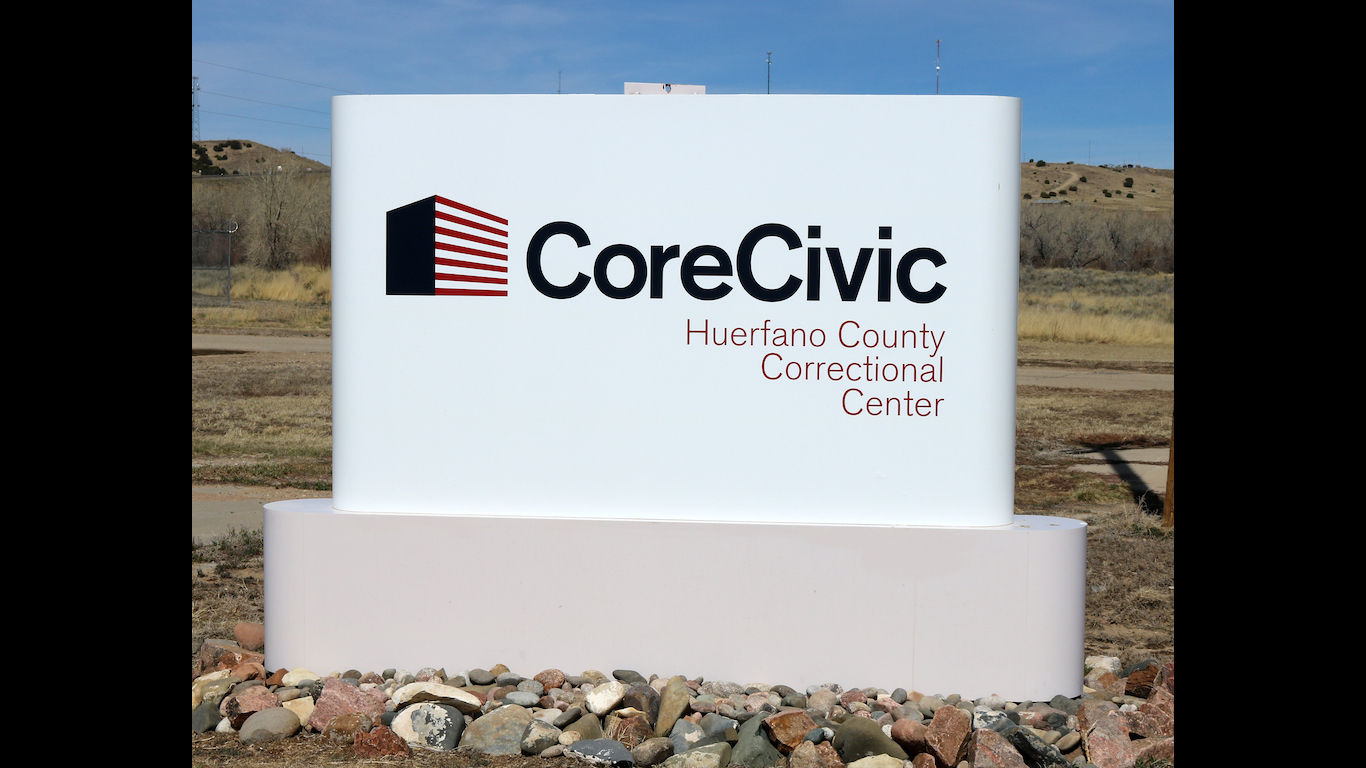
15. CoreCivic
> Former name: Corrections Corporation of America
> Year changed: 2016
The private prison industry in the United States, which had been growing in popularity as a solution for incarcerating inmates and as of 2017 housed over 121,000 inmates, has garnered a great deal of public criticism for its treatment of prisoners. In 2016, a report by the Department of Justice found that 14 private incarceration facilities had higher incidence of violence compared to federal-run prisons, and also said these prisons had substandard medical care and generally poor living conditions.
The largest private prison company in the country, Corrections Corporation of America, was included in the report. That same year, the DOJ announced it would no longer use private prisons. That October, CCA announced it would change its name to CoreCivic, likely in part to distance the company from the recent poor press.
It’s Your Money, Your Future—Own It (sponsor)
Retirement can be daunting, but it doesn’t need to be.
Imagine having an expert in your corner to help you with your financial goals. Someone to help you determine if you’re ahead, behind, or right on track. With SmartAsset, that’s not just a dream—it’s reality. This free tool connects you with pre-screened financial advisors who work in your best interests. It’s quick, it’s easy, so take the leap today and start planning smarter!
Don’t waste another minute; get started right here and help your retirement dreams become a retirement reality.
Thank you for reading! Have some feedback for us?
Contact the 24/7 Wall St. editorial team.
